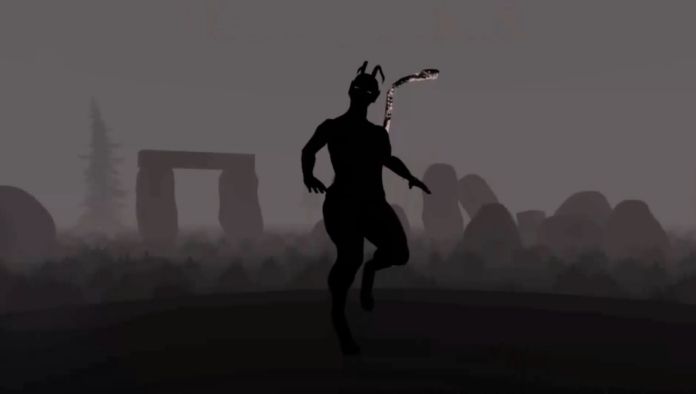Fresh out of school Kaighen Finley started his own web & game development company Team iNtuition. Just to be on the safe side he mainly focused on web development, but his heart was not in it. “Game development is a natural medium for my range of skills and interests”, he says and so he ‘pivoted sharply’ into game development after two years. That’s when he started working on Q’Redux that’s out now in Early Access on Steam.
Working solo comes naturally to Finley: “I’ve spent my life working alone. I function well like that.” It took him 4 years to create his game and in that time he learned some valuable lessons. “If you can imagine it, you can build it”, he says. Staying motivated isn’t hard at all for the solo dev. “It helps that designing artistic, digital gaming experiences and special powers is basically my dream work.”
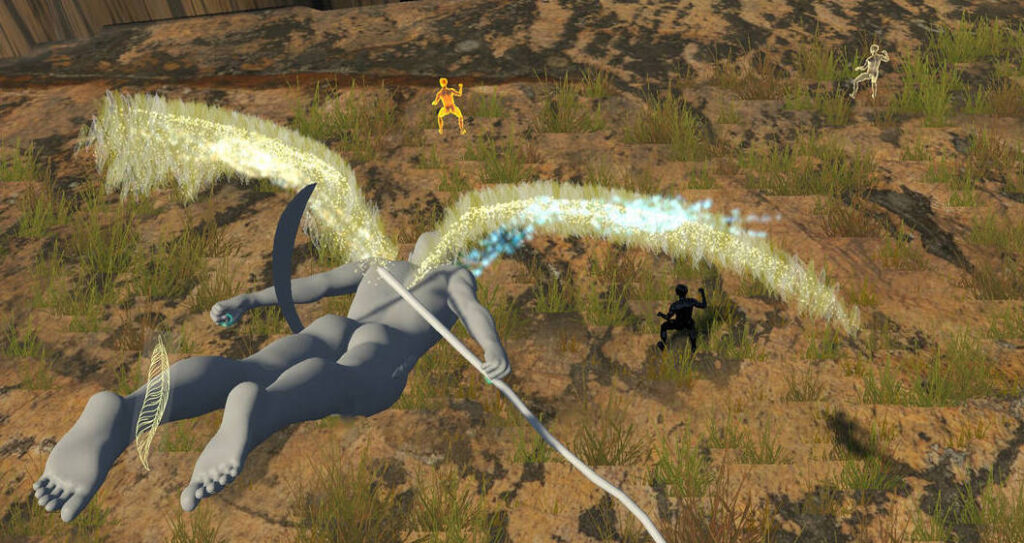
Why did you become a solo developer?
“Being a solo developer/designer was no different than what I had already been doing my entire life. As a kid, I designed special powers and abilities and fought against friends with them. As a youth, I read books and played games detailing worlds crafted around magic, with integral rules both soft and hard. And as a student, I got into Smash Bros, Elder Scrolls, and Minecraft modding. After encouragement from a friend, I studied and began building modded move sets (PSAs) in Smash Bros: Brawl for mages and characters from other franchises, independently, using the forums as guidance.”
“When I graduated in CS and Psych, a brief stint in corporate rubbed me the wrong way so I started my own small company – Team iNtuition: Web & Game Development. Initially, I wanted to build games, but invested my eggs in web development first because I thought I was being pragmatic. A year or two later, I’d made a nominal degree of unrewarding progress. So – after encouragement from my roomate at the time – I pivoted sharply into Unity, C# and game development. That’s when I started designing Q’Redux.”
What are the biggest advantages of working solo?
“Agility, Flexibility and Creative Freedom, mainly. I’ve been able to pivot between fields and areas, while also taking time to apply focus where it’s most needed to learn linked topics.The more people you work with, the more chain links you have to traverse for simple changes – the slower such processes are. I don’t have to decipher others’ code base, or wonder if an errant action will cause a branch merging issue or blow up a github repo. I don’t have to fix others’ mistakes or wait for them to do so. I can take time to minimize ‘tech debt’, improve performance, integrate user feedback, and even upgrade an entire system because it ‘feels weak’. I can just work whenever and wherever I want. I don’t have to consider team morale, or spend energy managing others. Or feel like I’ve wasted time in frequent meetings simply to ensure everyone is on the same page.”
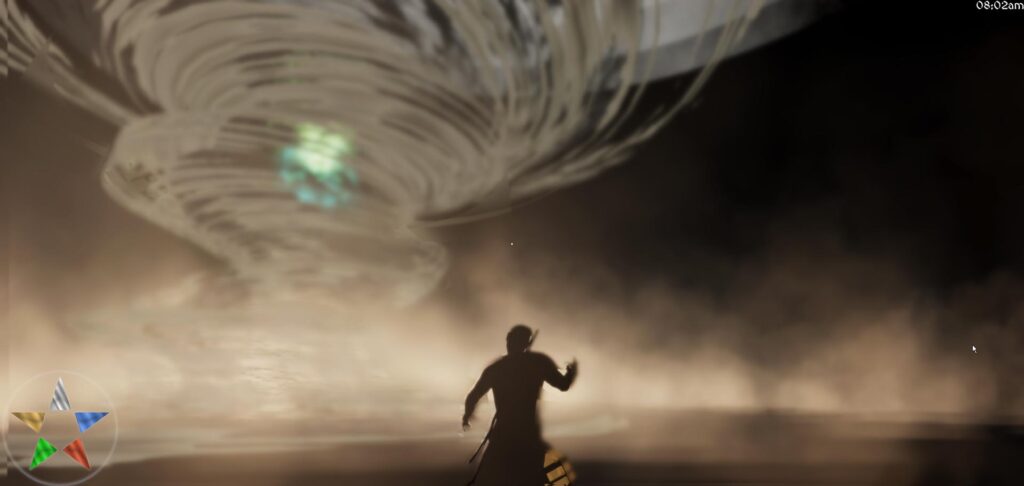
And the biggest pitfalls?
“Like the other face of a double-sided coin. Working solo loses out on much of the positives of working with companions. Sometimes interesting solutions arise from working under constraints. A skilled team, on the same page, can divide and conquer a work load, speed up workflow, share and dissect creative ideas (and their merits). They can help inspire and bring joy to the creative process and, most importantly, there are others to share a large/important part of your life with. It isn’t a necessity. More of a ‘nice to have’. But the morale and quality of life it can bring can be quite motivating, balancing & inspiring – if not all the above.”
What’s your creative process?
Seed: “There is no singular source. Sometimes ideas come in dreams, after rigorous thought, or while at the gym. Sometimes they come when watching a movie or playing a game, during a walk through a grassy gnoll, a mistaken impression, or even through casual or joking conversations with friends & strangers.”
Growth: “From there, a small note may be taken for later review. Write the idea down in as much detail as is feasible – what it looks or smells like, how it should seem or feel, what effects it should have on the viewer, or on the code. Any preliminary stats or numbers which may have come to mind at the time. Capture the impression, an artistic & technical freeze frame in time.”
Nurture: “Dissect the idea. Consider its uses. Predict its feasibility. Refine its edges. Increase its viability. If an ability is something like ‘a winged fireball spreading brilliant yellow and white flames and dealing 26 shock-and-awe damage in a 13 ft radius’ – figure out what that means, how it would be used, or useful. Consider under what conditions it becomes available, and how it fits into the broader game or ‘meta’.”
Effloresce: “Apply or build the idea. Test its feasibility. Observe the results. Reflect and iterate. The first 3 stages are largely mental. This one is both actual & tangible. This stage reads the shortest but often takes the most time.”
Overall, I call this process ‘Idea-smithing’ and with it I have crafted features, spells, stories and entire game concepts. But one thing I want to note, creative design is not necessarily – and by nature not at all – constrained by feasibility. That is why the Nurture stage is surprisingly critical. Sometimes I also include peer review as part of the nurture stage.
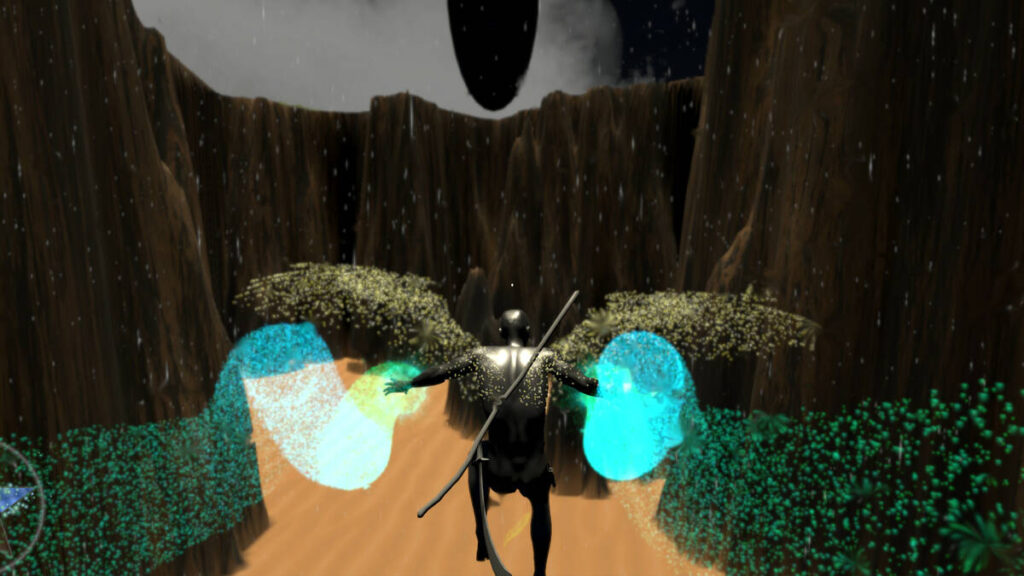
How do you stay motivated through (years of) development?
“Game development is a natural medium for my range of skills and interests. And I see it as the ultimate compilation of art(s) – light, sound, visuals, narrative, mechanics, psychology – a crafted or distilled experience. With any form of stimulating creative endeavor, it’s easy for me to lose myself in it naturally, almost obsessively, for an extended time. I sometimes question if that’s an Aspergian or fringe ADHD trait.”
“Having said that, self-care is important – fitness, sports or weight lifting, consuming healthy foods, taking time to reflect on thoughts/emotions/wants, time to fulfill needs. That’s part of why working with others isn’t so linear for me. A Team isn’t a team, it’s a specialized Family – an ecosystem designed around a creative ideal. Ooh, also casual lofi/chillstep, sunlit walks through grassy glades, and revisiting the source or an inspiration can help. I also reflect on the tarot from time to time.”
Will you ever work in a team or is it only solo for you?
“I once heard it said, ‘if you want something to come into your life, you have to make room for it’. Add to that a studio optimistically named ‘Team iNtuition’, and the rest is implied. I’ve always wanted to develop a team. But my philosophy on teamwork is somewhat… intimate. I’d imagine there aren’t many people I actually could work with – despite an otherwise moderate open-mindedness. I’ve spent my life working alone. I function well like that. But if the right companions come along, I’m willing!”
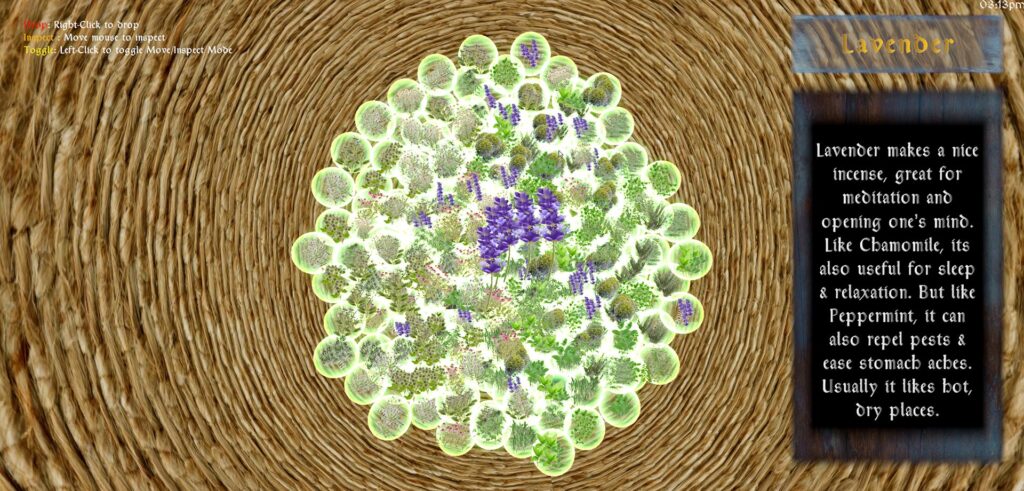
Q’Redux is the prologue chapter of a larger 3D action RPG that took you 4 years to build. What sets the game apart in your opinion?
“This game was created as a loving criticism of the Elder Scrolls series’ magic system, and 93% of video game magic systems in general. I don’t dare to think that a small, solo developer can craft something at the same scale and complexity of a AAA game’s magnitude, but that competition was never the goal. The ideal is to make a world touched by magic in integral ways, where the very use of sorcery – (magic drawn from a ‘source’?) – has spiritual, cultural & philosophical implications. I want each ability to (quite literally) ’transform’ your experience & style in accordance with each power unlocked.”
What’s the biggest lesson learned from this project?
“If you can imagine it, you can build it. But, be careful of multi-modal powers and compound interactions. Seemingly small features or changes can balloon the scope of any task. Always test your code. Testing is critical but time consuming, so figuring out a way to streamline that is important. Set personal deadlines. Manage marketing. Balance your mental health. I guess not really one big lesson, just a series of ongoing and continually-reinforced smaller ones.”
The toll on your mental health can be quite high as a solo developer. How do you deal with that?
“Calming, ambient, lyric-less music. Often Lo-Fi Jazz/Hiphop, zen chillstep, calming or evocative instrumentals, techno/music for productivity, A minimalist social environment (or busy cafe) during work phases. Taking time for gym, fitness, coffee dates, randomness, spontaneity, connecting with companions and cherishing laughter when it is to be found. It also helps that designing artistic, digital gaming experiences and special powers is basically my dream work -or ‘dreams at work’, to turn a phrase”.
“But even within that, I often do things that add stress – like updating entwined systems, compounding features and adding more quality assurance testing for all the above, when already under a tight deadline. So for things like these, I take the above steps to counter balance. Being ‘green-minded’ helps as well, but that’s just another possible solution on the list, mainly for headaches & stress management, if not for a social occasion.”

